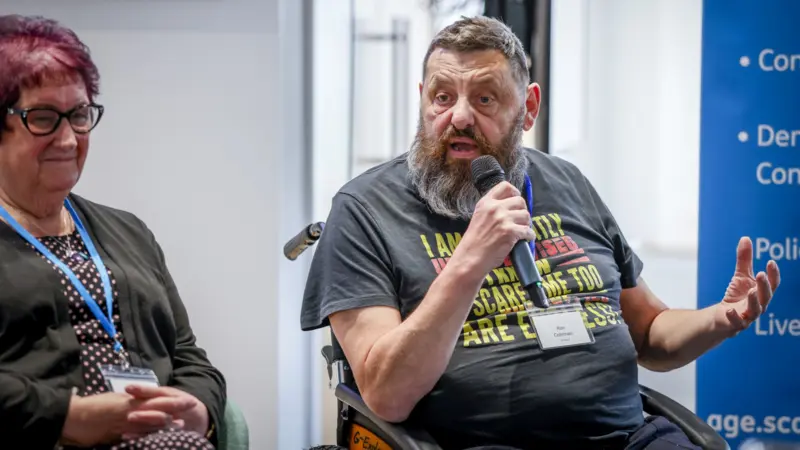Blog: The benefits of a good night's sleep

As part of our Research Café Series, the Health and Wellbeing team took a closer look at the topic of sleep and how it may – or may not – change as we get older.
Everyone sleeps, but that sleep isn’t always consistent or high-quality. As you’ll probably know from experience, getting a bad sleep can shape how well your day goes, what you reach for to eat, and how you feel.
Sleep changes as you get older, but the amount you need doesn’t
There are a lot of different factors that can affect people’s nighttime slumber throughout their life, and as they get older. It is important to know that on average, most adults need between 7-9 hours of sleep per night and this requirement does not change as you get older.
However, what does change is that your body is more likely to stay in ‘light sleep’ rather than deep REM sleep throughout the night. This means that you are more likely to wake up, have a restless sleep, and possibly not feel as recharged as you did when your body went into a deep sleep. Sleep problems (including insomnia) can be common among people over 50, so it is worth thinking about what you can do to maximise good sleep each night.
Beware of the extended nap!
It might be tempting to nap during the day to catch up with a bad night’s sleep. The research on the benefit of naps is mixed, but there is a consensus that if we do nap then we should limit it to no more than an hour (ideally closer to 20-30 minutes), and not sleep beyond 4pm. The idea of a ‘power nap’ might be familiar to you.
Excessive daytime sleepiness is not a part of normal ageing and could warrant a chat with your doctor about any medications you take, or underlying conditions or sleep problems.
A couple of other key takeaways from the research:
Create and stick with daily routines. It might not feel glamourous or exciting but having consistent timings and routines for both when you wake up and when you go to sleep can be a big help to your body clock. Your body will soon get used to the signals for gearing up and winding down each day.
Get access to daylight every day (ideally as soon as you wake up, or as soon as it is light) is crucial for your internal body clock. Spending time outside is ideal, but if that’s not possible then making sure you spend time looking out of a window. This gives your body the signals it needs to create hormones like melatonin that are important for helping you to feel sleepy in the evening.
Be mindful of how you move and fuel your body: what you do during the day matters for your sleep, and research tells us that moving, eating well, and staying hydrated all have an impact on getting good quality sleep. Limiting how much caffeine and alcohol you drink in the afternoon can help as these fluids can both be disruptive to sleep. Take a look at Age Scotland’s free Health and Wellbeing in Later Life Guide for inspiration about building healthy habits into your daily life.
Look at your ‘sleep hygiene’. Like looking after other parts of your wellbeing, it is important to stop and take stock of what you’re doing to set yourself up for a good night’s sleep. Are you watching stressful TV programmes or the News just before bed? Or looking at your phone or iPad? Perhaps swap these for a warm bath or shower to wind down instead.
Set up your environment for good sleep. The research suggests we should avoid doing any activities in our bedrooms other than sleeping or sex. Try to associate that space with rest and sleep, rather than other activities (like watching TV or reading a book).
If you can’t sleep, don’t stay in your bed. The research suggests that if you wake in the night and can’t get back to sleep that you may be better off leaving your bed, reading a book in a soft light, having a warm drink and waiting until you feel sleepy again. Staying in bed can be counterproductive and make you feel stressed as you watch the clock and worry about how you’ll feel the next day.
Through NHS Scotland, we have access to a free online sleep support tool called Sleepio. If you struggle to sleep, or want to learn more about improving your sleep this could be a good next step for you. You can access Sleepio online here.
If you’re a podcast fan and would like to hear someone speak more about sleep, why not try Dr Rangan Chatterjee’s Feel Better, Live More podcast on how to get better sleep here.


